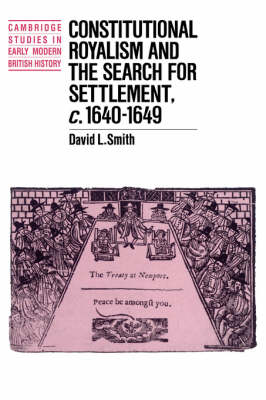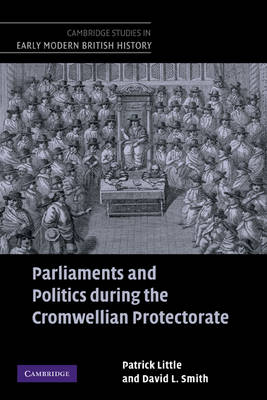Cambridge Studies in Early Modern British History
2 total works
Constitutional Royalism and the Search for Settlement, c.1640-1649
by David L Smith
Published 8 September 1994
'Constitutional royalism' is one of the most familiar yet least often examined of all the political labels found in the historiography of the English Revolution. This book fills a gap by investigating the leading Constitutional royalists who rallied to King Charles I in 1642 while consistently urging him to reach an 'accommodation' with Parliament. These royalists' early careers reveal that a commitment to the rule of law and a relative lack of 'godly' zeal were the characteristic predictors of Constitutional royalism in the Civil War. Such attitudes explain why many of them criticised the policies of the King's personal rule, but also why they joined the King in 1642 and tried to achieve a negotiated settlement thereafter. The final part of the book traces the Constitutional royalists through the Interregnum - during which they consciously withdrew from public life - to the Restoration, when many of them returned to prominence and saw their ideas vindicated.
Parliaments and Politics during the Cromwellian Protectorate
by David L Smith and Patrick Little
Published 1 January 2007
This volume provides a detailed book-length study of the period of the Protectorate Parliaments from September 1654 to April 1659. The study is very broad in its scope, covering topics as diverse as the British and Irish dimensions of the Protectorate Parliaments, the political and social nature of factions, problems of management, the legal and judicial aspects of Parliament's functions, foreign policy and the nature of the parliamentary franchise and elections in this period. In its wide-ranging analysis of Parliaments and politics throughout the Protectorate the book also examines both Lord Protectors, all three Protectorate Parliaments and the reasons why Oliver and Richard Cromwell were never able to achieve a stable working relationship with any Parliament. Its chronological coverage extends to the demise of the Third Protectorate Parliament in April 1659. This comprehensive account will appeal to historians of early modern British political history.

